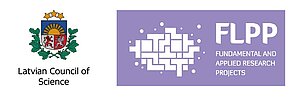SUBSISTENCE STRATEGIES AND THE FIRST DEMOGRAPHIC TRANSITION AT THE LAKE LUBĀNS WETLAND: ABORA LATE NEOLITHIC SETTLEMENT CASE STUDY

Project No.: lzp-2020/2-0032
Implementation period: 1 December 2020 - 31 December 2021
Project costs: EUR 100 389
Principal investigator: Dr. hist. Gunita Zariņa
One of the most prominent research topics in contemporary archaeology is the transition from foraging to farming, and how it affected different aspects of life. In demography, it manifested with an acceleration of reproductive rates, because the availability of dairy and cereal products allowed weaning earlier in child’s life, thus enabling more frequent pregnancies.
Until recently, the scientific consensus has stated that farming in Latvia became more widespread and overcame foraging during the Late Neolithic and transition to the Bronze Age. Largely, this interpretation is based on the Lake Lubāns wetland Stone Age archaeology. Recent developments in stable isotope analyses and new data have raised discussions regarding this model not only in Latvia, but in the East Baltic context as well. This project aims for a new research with an interdisciplinary approach that incorporates state of the art analytical methods and re-examines previous claims by gathering new data and critically reviewing previous research.
Abora settlement is chosen as a case study due to its prominent place in the Lake Lubāns archaeology. The settlement was occupied most densely during the Late Neoltihic, and inhabitation continued in the Early Bronze Age as well. Besides the settlement, Abora site includes human burials, providing rich osteological and archaeological material.
- Navigating the Latvian History of the 20th–21st Century
- Expanding Concept and Methodology for Human Past Studies
- Ethnographer, Society, and Art
- The environment and early farming
- Viking Age in Latvia: an interdisciplinary study
- Burial practices in the landscape
- Skills in synergy, crafts in context
- Dyes and Dyeing
- Magic and Superstition
- Knots in Clay
- Contextualization of Traditional Clothing

 CONFERENCE
CONFERENCE